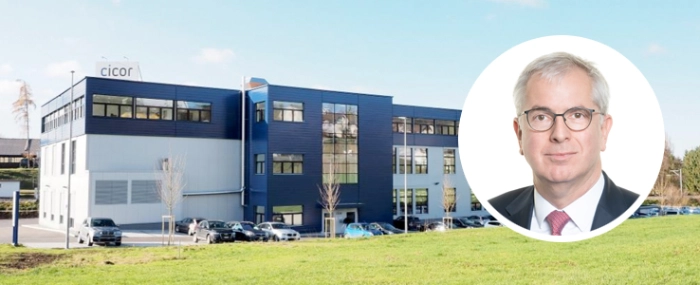
© Cicor Grouppe
Electronics Production |
Evertiq’s industry pulse report – Cicor
Europe – as a whole – needs to understand that the availability of electronic components is extraordinarily important for the economic development and security of the continent, according to Cicor CEO, Alexander Hagemann
In this article series, Evertiq has reached out to a number of European EMS providers to see how the challenges from the last two years have affected everyday operations. This time we will hear from Cicor’s CEO, Alexander Hagemann.
Given the fact that we have battled the pandemic for close to two years now, what lessons have been learned and what changes have been made in your company?
“The COVID-19 pandemic has impressively shown me how committed our employees are, how dedicated they are to our customers and with how much effort our global management teams have ensured the safety of our 2,000 employees. The cohesion at Cicor is exceptional.”
“I have learned that our years of effort to make Cicor resilient have been successful. For example, operating margins at the EBITDA level suffered only slightly in the crisis year 2020, and margins in 2021 are already back above 2019 levels,” Mr. Hagemann says and continues. “The biggest change since the beginning of the pandemic has been the leap forward in digitization. Almost overnight, our employees have adopted tools such as virtual meetings or paperless document processing, thereby significantly increasing the efficiency of our business processes.”
As soon as we entered 2021, it became very clear that the pandemic isn’t the only problem weighing down on the industry, the shortage of components have greatly affected our industry and adjacent ones.
As a European manufacturer, what is your opinion on the fact that the European electronics industry is still very much dependent on Asia in terms of semiconductor supplies?
“Supply chains are global and will remain so – this is particularly true for the electronics industry and does not represent a problem per se. Rather, the current supply problems are based on the strong growth in demand with insufficient manufacturing capacities and are exacerbated by current events; the pandemic, lack of transport capacities, natural events,” says the CEO.
“It would be unrealistic to assume that the complete semiconductor production from raw materials to wafer production and packaging could be localized in Europe at acceptable costs. Instead, we should significantly improve our risk management, create redundancies and alternatives. We must understand that electronic parts, including active and passive components, printed circuit boards and mechanical components, are not commodities.”
“With this awareness, we support our customers in risk management by paying attention to the use of readily available components already during product development, actively managing obsolescence, and providing alternative production sites in Asia and Europe,” Mr. Hagemann continues.
Has the pandemic highlighted the need for closer and smaller supply chains in your opinion?
“Nearshoring or reshoring, in other words moving production to the markets, is in my view an essential part of any risk management. I would like to see us come to a differentiated cost awareness: We usually don't put a price on supply chain risks but only evaluate product costs under ideal circumstances. If there is then a supply disruption with sometimes catastrophic consequences such as loss of business or plant shutdowns, these are usually not valued financially. Here, the understanding should grow that every insurance policy costs a premium, that tight and small supply chains represent a value that may lead to somewhat higher product costs, but over the life cycle can significantly reduce costs.”
The United States for example, is looking to jump-start the development of new chip factories throughout the country in order to reduce its dependency on China. Should Europe as a collective also take a similar approach?
“I would like to see an understanding in Europe that the availability of electronic components is extraordinarily important for the economic development and security of our continent. This understanding exists today in the energy supply sector, for example, but not in the technology sector. Therefore, supply chains should be thoroughly understood and risks should be countered by localization or by building up strategic reserves. Quasi-monopolies that have formed in recent decades, such as magnesium or rare earths, should be broken up and alternatives created through joint efforts.”
What is the general feeling now that we are drawing close to the end of 2021 and approaching 2022?
“We have learned to deal with the pandemic. Despite material shortages, Cicor is growing significantly. Our order backlog is at a record high and the pipeline of attractive new projects is full. We have successfully completed the first acquisition of our growth strategy announced in the summer. I am therefore looking forward to the end of the year and next year with strong confidence. Cicor emerges from the crisis years 2020 and 2021 significantly stronger.”

